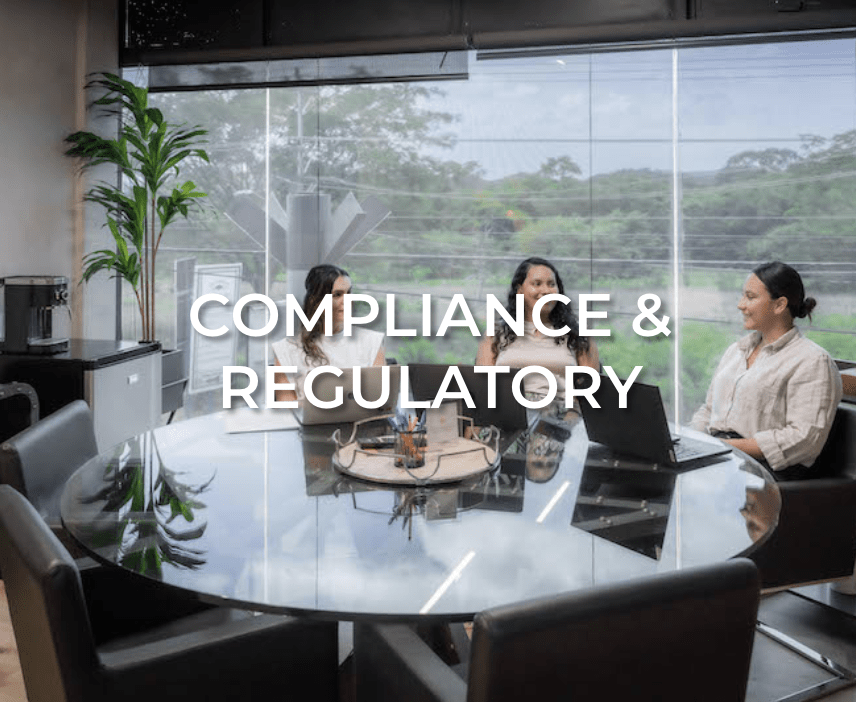

Confidentiality in the Workplace
by Quatro Legal Labor & Employment Team | Feb. 05, 2025 | Article, Labor & Employment

Nowadays, business information is one of the most valuable intangible assets of any business. Therefore, confidentiality has become a crucial aspect for both large and small companies seeking to protect their information and trade secrets from the competition. This is especially relevant given the inevitable access that employees have to this information to perform their duties properly; information that may not only belong to the company but also to its clients, depending on the nature of the business and the services offered.
Labor Code Provisions
In Costa Rica, this right and obligation are mainly regulated by Law 7975 on Undisclosed Information, which protects commercial and industrial information that has commercial value to its owner due to its secret nature. The law states that any person who, by reason of their work, profession, or business relationship, has access to this type of information, and whose confidentiality has been explicitly communicated to them, must refrain from using or disclosing it without the owner’s consent, even after the employment relationship has ended.
Moreover, the Labor Code also establishes, among the obligations of workers, the duty to rigorously keep technical, commercial, or product manufacturing secrets, as well as administrative matters whose disclosure could harm the employer. It also stipulates that revealing these secrets could be cause for the termination of the employment contract.
Since confidentiality is a duty established by law, it is not indispensable to have a signed document from the staff to demand the protection of such information. However, it is highly recommended to establish internal regulations such as policies, contractual clauses, or documents annexed to the employment contract, defining what is considered confidential information, as well as the procedures for handling such information and the potential disciplinary and/or criminal sanctions in case of non-compliance.
The law does not specify a specific term for the protection of the information, so it may be perpetual. It is understood that the information loses its protection as confidential if it ceases to have that character, when the owner authorizes its disclosure, or when a competent authority orders its disclosure.
Best Practices for Protecting Confidential Information

Educating staff plays a crucial role in this duty. Early instruction to the employee about their duties both during and after the employment relationship can be an effective preventive practice. It should be remembered that information is shared within the framework of an employment relationship for specific purposes, and access to the information can be suspended and its reproduction prohibited by any means both during and after the relationship.
Additionally, implementing technological and organizational security measures is essential to protect confidential information, from using specialized software to continuously training employees in good information management practices. Often, we ask the employee to understand the sensitivity of the shared information, but in practice, the employee does not always perceive a real effort to protect that information.
Since many people are currently working remotely, whether from their homes or in coworking spaces, it is crucial to regulate the handling of this information outside the company. Workers should be careful with the information, avoiding leaving it in view of third parties or in places where it can be easily accessed, even by competitors.
Confidentiality in the workplace is a critical aspect that must be managed with care and attention. Companies must adopt a proactive and dynamic approach to the new forms of access and hacking available. Remember that the employee is not obliged to assume that certain information is sensitive or confidential; let’s not leave it to their discretion to define what is and what is not confidential information. Let’s provide clear guidelines and unequivocal messages that will benefit the company and its valuable information.
We hope this information is helpful. We are at your disposal to further discuss the topic.
Marcela Acosta V
Partner and Founder
mav@quatro.legal
Disclaimer: The information provided in this blog post is for general informational purposes only and is not intended to constitute legal advice. While we strive to ensure the accuracy and timeliness of the content, laws and regulations are subject to change. For the most accurate and up-to-date information, please contact our office directly. Some images may be AI generated.
Get To Know Quatro Legal

We’re bringing empathy and excellence back to legal counseling. Quatro Legal is built on a bedrock of kindness, a passion for service, and a commitment to guiding you through your legal challenges with ease.
OUR SERVICES
EXPLORE BY
category
REAL
ESTATE
CORPORATE
COSTA RICA
LIFESTYLE
LABOR & EMPLOYMENT
CLIENT
TESTIMONIALS
FREE TRADE
REGIME











